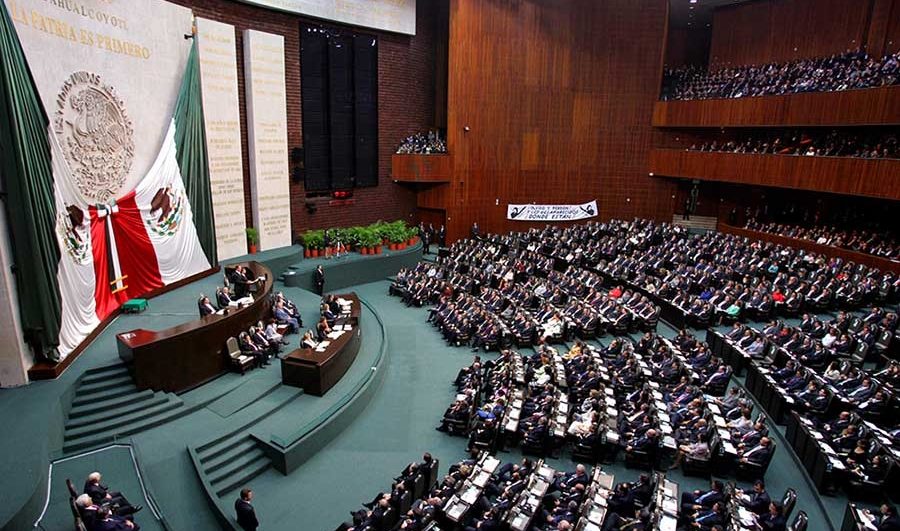About six years ago, leaders of Mexico’s ruling Institutional Revolutionary Party (PRI), the center-right National Action Party (PAN), and the center-left Party of the Democratic Revolution (PRD) were negotiating the Pact for Mexico. The Pact’s reforms touched several sectors of Mexico’s economy, encouraging free market competition and economic liberalization, and got Enrique Peña Nieto’s presidency off to a roaring start. Suddenly, he was a progressive reformer taking a bold first step toward modernizing Mexico.
But today, all three of these parties are in disarray. Peña Nieto, now a largely unpopular and polarizing figure, is preparing to leave office. Mexico’s executive and legislative branches are about to come under the control of Andrés Manuel López Obrador’s National Regeneration Movement (Morena). In its new position of power, Morena will be able to govern almost as if unopposed. With majorities in both chambers of Congress and the presidency to boot, it will be able to pass and approve any law short of a constitutional amendment.
Morena’s rise can largely be explained by its competitors’ problems. The PRI’s attempt to rebrand itself through Peña Nieto’s administration backfired. The party’s image was deeply hurt by a series of scandals—the infamous disappearance of the 43 Ayotzinapa students in 2014; the rise of gasoline prices after the energy reform’s implementation; several cases of corruption involving governors affiliated with the party; and allegations of corruption leveraged against Peña Nieto himself. The PRD has been a shadow of itself ever since López Obrador left the party in 2012, and it has only lost more supporters to Morena since then. The PAN divided itself when a power struggle between Ricardo Anaya and former first lady Margarita Zavala saw the latter leave the party in late 2017. Both the PAN and the PRD lost credibility as alternatives to the PRI because of their support of Peña Nieto’s Pact for Mexico. This hurt their appeal, and the electoral alliance they formed last summer failed to gain traction. Morena succeeded in branding its rivals as a shadowy and untrustworthy “mafia of power,” dealing all three of them their worst results in a presidential election in Mexico’s democratic history.
The opposition is the weakest it has been since Mexico’s transition from a one party state to a democracy with Vicente Fox’s presidential victory in 2000, but Morena’s leaders should think twice before monopolizing the legislative process. Rather, they should recognize and respect opposing viewpoints, looking to collaborate with opposition parties whenever feasible. After all, now there’s no one else to blame.
Given the power Morena now holds, it will bear significant political responsibility over the next six years; and costs if it fails. The issues the party has promised to address—namely corruption, crime, and inequality—are all extremely complex. If they were not, they would have already been solved. If Morena’s policies fail to deliver quick, positive results, it will no longer be able to turn to the “mafia of power” as an excuse. Now Morena itself is in power, and it is in the party’s best interests to craft the best possible policies to avoid this debacle. This is where the opposition has a role to play, as its vigilance will be key in holding Morena accountable and scrutinizing policy proposals. Morena’s overwhelming popular mandate means that it could ignore the opposition if it wanted to in most cases, but it would be doing itself a favor by acknowledging and listening to criticism.
Somewhat ironically, Morena’s newfound power evokes memories of the old PRI, which ruled Mexico for 71 straight years until 2000. Back then, the president’s authority was absolute, as the PRI-controlled Congress towed the party line. Opposition parties existed, but they lacked the representation needed to mount a substantial challenge to the PRI’s policies. Ever since meaningful electoral reforms allowed the PRI to lose its congressional majority in 1997, Mexican policy-making has been hindered by gridlock; the Pact for Mexico was an exception to the rule. But now, Morena’s majorities will make gridlock nearly impossible. Obviously, Morena is not the PRI of old, and its democratic mandate cannot be questioned. But should the party choose to shoehorn legislation through Congress without allowing for meaningful deliberation, it risks doing its image a disservice.
The PRI, PAN, and PRD are all only just beginning what will be a long and uncertain period of reflection and rebuilding. Having lost the trust of the majority of Mexican voters, they will have to prove they deserve to get it back. While Morena has earned an impressive popular mandate, it must not use this as an excuse to ignore the opposition. The debate and accountability that opposition parties provide prevent the ineffective policy that complacency yields. Perhaps even more importantly, recognizing the opposition would only reaffirm Morena’s commitment to a pluralistic and democratic Mexico.
Beyond all of this is the fact that Morena will have to secure some opposition support if it is to accomplish a central promise of its congressional and presidential campaigns—the repeal of the Pact for Mexico’s educational reform. Because the educational reform was a constitutional amendment, its revocation would require the support of two-thirds of both the Chamber of Deputies and the Senate. However, even if all of the congressmen aligned with the three parties (Morena, the Labor Party, and the Social Encounter Party) that endorsed López Obrador’s presidential candidacy voted in favor of such a measure, it would still fail by 20 votes in the Chamber of Deputies and 15 votes in the Senate. Morena will have to develop a proposal that will elicit the votes of at least a few opposition legislators. And, unless Morena’s alternative to the educational reform is truly an improvement, the opposition ought to stand firm in its resistance.

